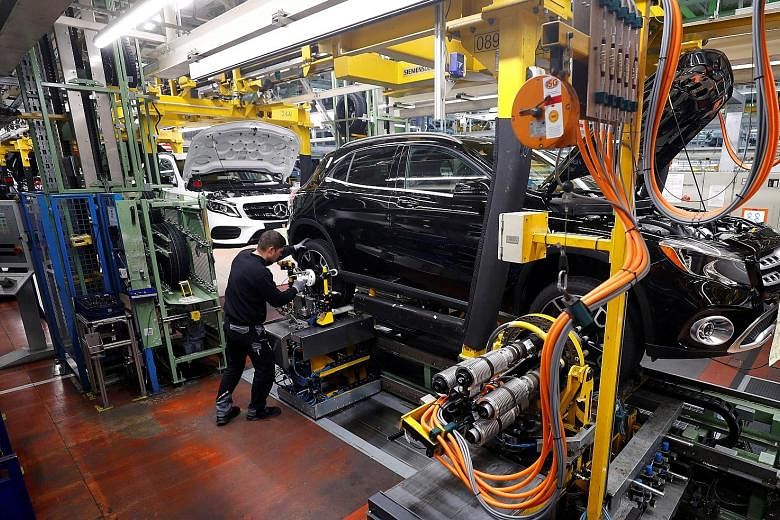FRANKFURT • Germany may have narrowly avoided a recession in the third quarter but pressure on the country's industrial champions shows no sign of abating.
Daimler said on Friday that it will shed more than 10,000 positions, lifting the tally of job cuts announced this year across Germany's manufacturing sector to more than 100,000, according to Bloomberg calculations.
Companies from Volkswagen to Siemens are letting workers go as Germany's powerful automotive industry struggles with a shift towards electrification and self-driving cars, and makers of machinery and robots are hit by slower exports and trade disputes.
Producers of renowned German products such as Meissen porcelain and WMF kitchenware are also trimming their workforces.
While the country's jobless rate, at 5 per cent, is close to its historic low, the number of freelancers is rising and short-term work has been creeping up since last year.
Automotive companies, in particular, are tightening their belts. Daimler alone pledged to save a total of at least €1.4 billion (S$2 billion) in personnel expenses - potentially putting many more jobs at risk.
The full effect of the cuts - which also affect units of German companies abroad - may not be felt immediately. Labour laws and powerful unions make it hard to fire workers, and many large companies have agreements banning forced dismissals, meaning job-cut programmes have voluntary elements and sometimes run for years.
Daimler on Friday said its labour deal ruling out forced layoffs until 2029 remains in effect. That sets the stage for more cuts in the years to come, as the realities of the structural shift become more evident.
Still, the deteriorating prospects for employment could turn into a headache for the German government, which has been considering following countries from China to Britain in beefing up investments to stimulate its economy.
Electric cars, which do not need complex transmissions and turbo chargers, are less labour-intensive to assemble. As a result, automaker workforces are as much as 20 per cent too big, according to Mr Frank Schwope, an analyst at Nord.
"This is only the beginning," Mr Schwope added. "We're going to see more of such savings rounds in the next decade, as the industry faces a deep transformation."
Across the German auto sector, including local operations of foreign manufacturers, about 150,000 jobs might be at risk in the coming years, according to Mr Stefan Bratzel, director of the Centre of Automotive Management near Cologne.

